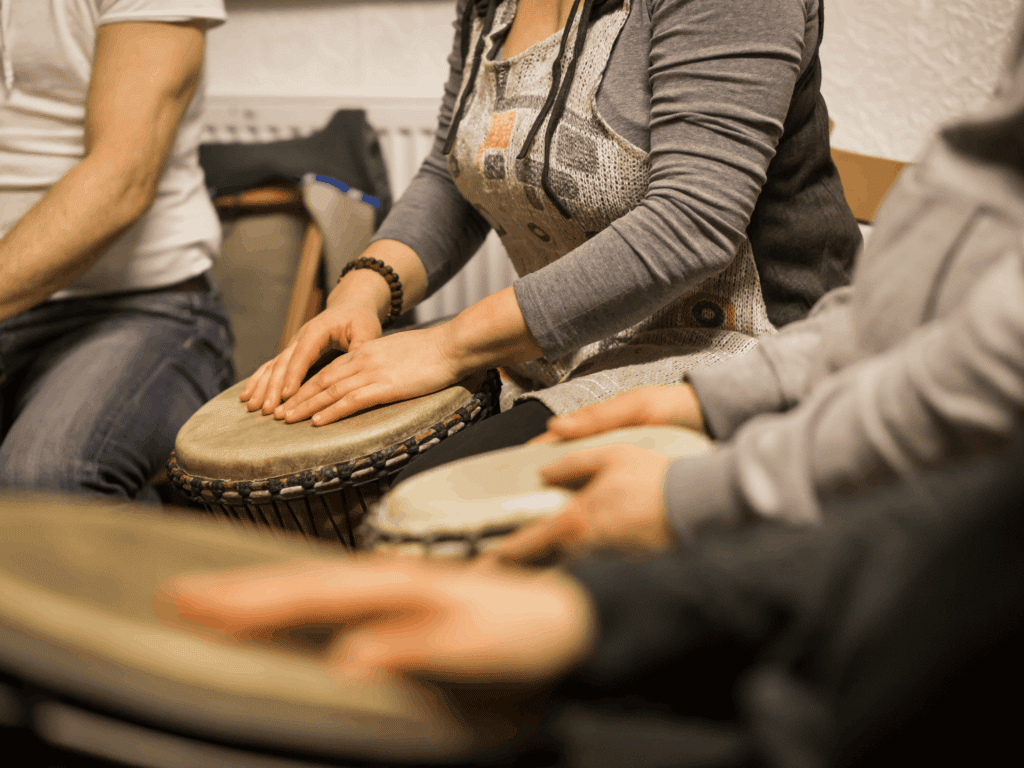“In my disease, I had given up my art, a self-inflicted punishment far greater than any imposed from outside.” – Bill W
People identify with music. It nurtures vulnerability while also offering a majestic power to heal. There is a connection between the listener and songwriter that is intimate and powerful. Two very different people can relate to a song deep down in their heart in a way that many other art forms fall short. It’s therapeutic. Finding the right song that matches an emotion can help a listener process their emotions, even if they are not aware of it. And for the musician, writing or recording music straight from the heart can mean cathartic self-expression. Or as Leo Tolstoy explained in a short few words, “music is the shorthand of emotion.”
This is why we are excited to debut our new music program here at Northbound. Music is beautiful; and so is recovery. Combining music and recovery seemed to be an obvious next step in our devotion to clinically innovative treatment. Our music program takes recovery to the next level by showing our clients with musical backgrounds how to explore their passion while positively impacting their recovery. We recognized this as an opportunity to take our standard CORE curriculum to a level that would resonate therapeutically for musicians in early recovery. The program is led by Dusty Watson, a Northbound case manager with an impressive musical career. Dusty grew up in Southern California, started taking drum lessons at six years old and recorded his first album by the age of nine! Sober himself for 24 years, he understands firsthand the power of music in recovery, which is why he was excited to help develop the music program. When discussing the therapeutic abilities of music in recovery, he says, “playing music in a group setting allows the newly sober individual an opportunity to express themselves, bond and relate to others, and feel a part of something larger than oneself.” We feel lucky to have Dusty involved with this project. While working at Northbound, he has kept his music career alive, currently drumming for The Sonics, who Rolling Stone cited as releasing “one of the 20 best albums of 2015.” Dusty put his head together with Stephen Creel, veteran therapist and musician, and Connor Woods, Admissions Counselor and musician, to put together a robust curriculum. Stephen explains about his own experience, “music is an international language that can express a feeling or mood without need of words. In fact, sometimes words are not adequate, in any language, to convey what a few well-chosen and played notes can.”
Living and working in the music industry can be a treacherous environment for those in early recovery, so we show musicians how they can integrate their passion into a thriving lifestyle of recovery. Those enrolled in the music program have the opportunity to create original works, explore how being a part of the music community has impacted the development of their addiction, process the interplay between music and mood, and enhance their ability to utilize music as an effective self-soothing and relapse prevention tool. And to top it all off, music program clients engage in real life music-oriented events and experiences to empower them to build a thriving recovery within their musician lifestyle.
The curriculum is a steady stream of music programming woven throughout a client’s standard CORE schedule. Once a week, each gender participates in an experiential music group where they are provided with a space to explore the impact that being a musician has had on their addiction. Playing, composing, and listening to music are the centerpiece of the group process. Clients are given a chance to process the interplay between the musician’s lifestyle and addiction, what recovery within the music community looks like, how music impacts mood, and other various topics.
Creating music is about expression, so our clients are encouraged to spend time writing and developing original pieces. Once a month, each gender-specific group is given eight hours at a recording studio. It is their chance to connect with the original pieces of music that they have been creating throughout the month. This is what makes Northbound’s program unique; we take music therapy to the next level. Clients are not only creating musical works as an outlet, which often focuses on healing and hope, but they get to see their work come to life. Recording music makes the art tangible. A client’s concept transforms into a recording that they can then take home and carry with them on their journey of recovery. There are also many ongoing opportunities for music program clients to perform for other Northbound clients and families, as well as to the local community.
Music can also have a majestic healing power, because there is often interplay between music and mood. Therapeutically, we hold a monthly drum circle which gives clients a glimpse into music’s centering and meditative possibilities, and enhances a sense of community amongst each other. This is a chance for clients to learn how to utilize music as a healing tool that they can take with them when they complete treatment.
Earlier in the year, Northbound had the pleasure of welcoming Steven Tyler from Aerosmith as a guest speaker. He shared his story of addiction and recovery with our clients and staff. It was a story that resonated with everyone who has been touched by addiction. It was an incredible evening, so we wanted to offer similar experiences to future music program clients. We made sure to schedule guest speakers monthly to share their experience, strength, and hope at Northbound to further inspire and encourage our clients.
When a musician reintegrates into the music community, there is often the question of “well, what now?” They were able to live without drugs and alcohol while in treatment, but studios, venues, and late hours can be overwhelming in early recovery if they are not prepared. So we make sure that our clients are prepared with the necessary tools for recovery. Once a month, we take our clients on an experiential activity. From concerts, to museums, and special events, these trips prepare our clients to engage in music oriented events sober. They are able to gain real life experience with the support and safety of our staff.
At Northbound, our In Vivo treatment model is focused on allowing our clients to experience recovery in real life situations. Our new music program is a perfect addition to our treatment options, and works well in combination with our other programs. For clients in our Collegebound program, for example, this new music program can be a useful companion. They are given the opportunity to engage in academic work focused on music at a variety of local education institutions while still focusing on their recovery. We are excited to watch our music program blossom and become a standard part of the Northbound Experience. We want to encourage our clients to follow their dreams in sobriety, believe that the sky is the limit, and tell them above all, “Don’t Stop Believin”.










